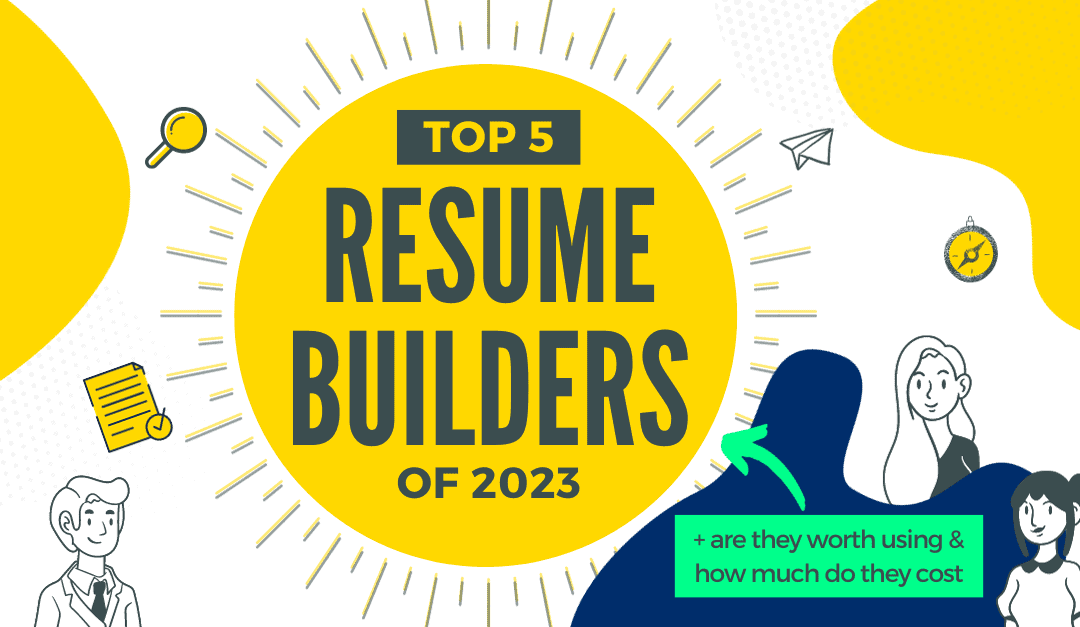
3 Ways to Organize your Job Search (+ Free Tools & Templates to Keep Track of your Applications)
The average job search takes 5 months in the U.S. with some job hunts taking 12-24 months.
Staying organized during a long period of time like that can be tough, but it’s incredibly important to not only improve your results, but also your morale.
A little while back I was chatting with Matt Warzel, founder of MJW Careers. We started talking about how difficult it is to keep your morale up during the job hunting process.
Matt, as usual, didn’t sugar coat things. He told me, “Job-hunting sucks. Let's not put it politely because sometimes it's not fair. Quite frankly, it can be a rig all together.”
Matt is a resume expert and has been featured in Yahoo Finance, Money, The Ladders, Monster and AARP. He has helped thousands of candidates navigate the job hunting process and over the years he has found a few different ways to organize the job hunt.
I thought it would be useful to have Matt share some of his techniques, as well as some of his colleagues’, for staying organized during the job hunt.
So, without further ado, here is Matt:
Thanks Bogdan!
The job hunting process can make us feel disheartened, or worse, disengaged. It’s an arduous process and can beat you down sometimes.
The simple fact is that 75% of job applications are never seen and only about 5 applicants out of hundreds actually earn a face-to-face interview. Those are some hard metrics to swallow.
So what could be some reasons behind this? In a lot of cases it has nothing to do with us.
A recruiter fights with their partner before work and you're the first call!
A hiring manager's in a rush and failed to connect all the dots that would've made you a valid candidate.
A friend forgot to forward your resume on to the decision-maker as promised.
We can’t control these things, but what we can control is our schedule, our process, and our methods.
It's a numbers game and quality matters, so if you want to land your next job in less than 5 months, here are three ways to keep your job hunt organized.
1. Create a Job Search Schedule
I find myself like a blind mouse looking for cheese when I don't have my schedule together. Sure my wife hates my alarms that buzz all day, but this is how I get my work done. If I don't use my iCal, I'm screwed.
Working on your job search is very different from working at your job. There’s no manager telling you what to do, there are no coworkers to schedule you into meetings.
It’s just you and your schedule.
I recently asked my friend, Brad Lebowsky, President of Hunger for Success, for what his advice would be on this topic:
"I like to coach people by asking when they are most productive. Some people (like me) are morning people. Some are evening people. Whichever works best for the jobseeker, that should be the time they are applying for jobs; when they are the most productive. I also believe a jobseeker should be active seven days a week. If you miss a day, you could miss an opportunity. One thing I notice on Indeed.com is that jobs can be posted and taken down within hours of the first post. That usually indicates a change of heart or the demand was so high, they pulled it because they had enough good applicants."
Peter Surowski, Outreach Director of WP Code Camp, has a similar take. He explains,
"We always tell the students in our boot camp to treat their job hunt like a job. Wake up early and start hunting at 8 a.m. By 10 a.m., you should be rewriting your resume to be optimized for three or four jobs. By 4 p.m. you should be sending those resumes and writing follow-up emails to your potential employers."
No one wants to spend too much time on job hunting. You’ll inevitably lose focus and therefore any real productivity.
Creating a job hunting schedule will enable you to not only manage your time better, but also enable you to track wins and show real, tangible progress. With purpose, people flourish. With proper scheduling, people achieve purpose.
2. Automate Your Job Search Protocol
The benefit of living in the tech age is that we get super neat tools to automate our lives. This is also true for your job search. From scheduling to beating applicant tracking systems, there are tools that can help with everything.
When I talked with Brad, he said,
"I recommend Indeed.com because you can customize and automate your searches. We coach our participants to use keywords as 'automated searches' for their job search. We’ve found through research that keywords like 'problem solver', 'inquisitive', or 'analytical' can pull up jobs that have a broader range of industry and career. In addition, if jobseekers identify with these verbs/adjectives, they most likely have jobs come up that are a better fit for them. We discourage using job titles because 'admin' will pull up a generic search that may not clearly fit."
The best way to automate your search is to set up email alerts on Indeed.com and Google for jobs in your targeted roles.
Peter, on the other hand, prefers taking a bit of a more niche approach. He says,
"You can find a lot of apps that serve niche markets. For example, a lot of my students use BuiltinLA, a job site just for tech jobs in the Los Angeles area. If you're looking to work at a college, there's HigherEdJobs.”
A couple of lists I recommend is this list of best websites for remote jobs and this other list of the best resume builders. Both of which are super helpful.
I like both what Brad and Peter say because if you can shave off any time, even if it's minutes a day, that adds up. How and where you find your jobs will help streamline your efficiency and create more work-life balance in the long-term.
3. Maximize LinkedIn To Your Advantage
According to LinkedIn Business, top recruiters are 60% more engaged with LinkedIn recruiting tools versus average recruiters. That means, recruiters on LinkedIn are above average and will most likely look deeper into your talents.
Even though LinkedIn is expansive as hell, there are ways to chip away at it and leverage its powerful network of 650M+ users to your advantage.
Peter said that,
“With LinkedIn, keywords are everything. Iif you're a company looking for a developer with experience with PHP or MySQL, if you don't have the word 'PHP' and 'MySQL' on your page, you won't pop up on their radar."
Another colleague of mine, Jeff Altman, President of The Big Game Hunter, preaches using LinkedIn daily on his wonderful podcast.
Jeff is an early adopter of the platform. "I’m LinkedIn member 7,653 of the more than 650 million people on LinkedIn. I worked in recruiting for more than 200 dog years and filled more than 1,200 full-time positions.”
Jeff has some serious experience, to say the least. Here’s what he had to say about how to organize your LinkedIn:
“There are three things that you can do to maximize your results from LinkedIn:
1. Optimize your LinkedIn profile for keywords to make yourself easily discoverable for people who are trying to find someone like you.
2. Include an email address in the summary area of your profile. Why make them pay to contact you when you can just give them the email address and let them contact you for free?
3. Log on daily and check for messages. There is nothing worse than to miss out on an opportunity because you weren’t logging on to find out about it."
Whatever you do, make sure that you're constantly upgrading your knowledge of best practices and improving your search skills. Continue to learn what you are good at and how to present that value to a potential employer.
My Favorite Job Tracking Tools
And lastly, I’ll leave you with a few of my favorite tools to stay organized at your job hunt.
Job Tracking Spreadsheet | The Muse
Job Leads Table | AirTable
Job and Interview Tracking Template | Zapier
Thank you for reading! Please visit JobStickers to keep up with all of MJW Careers' content, and visit MJWCareers or email warz65@gmail.com (or call 855-YES-EMPLOYEES) to learn more about our resume writing, interview training, career coaching or outplacement services and solutions.
Read more resume and interview best practices on The GHYC Blog.
More from the blog:

Best Resume Builders of 2023 (Pros & Cons + Prices)
Modern resume builders use AI, ATS-friendly templates, and active recommendations to help you build your perfect resume faster than ever before. In this post we’ve rounded up the 5 best resume builders of 2023.
How to Beat the ATS in 25 Minutes | The Ultimate Guide
In this guide I’ll show you how to beat the ats (applicant tracking system), plus I’ll give you 2 ATS-friendly resume templates and a free tool to test if your resume is ATS-friendly.
Accelerate your career with a course!
Tired of waiting to hear back from hiring managers? Speed up your job search with one of our accelerated courses. Learn how to optimize your resume, improve your LinkedIn, and nail your interviews to get hired within weeks!
Matt Warzel is a career coach who has been featured in Yahoo Finance, Money, The Ladders, Monster, AARP and more. He has helped thousands of candidates navigate the job hunting process using best practices he has learned over the years. Matt is CPRW and PARWCC certified in resume writing and his no-nonsense approach means his clients get their desired roles faster without wasting any time.